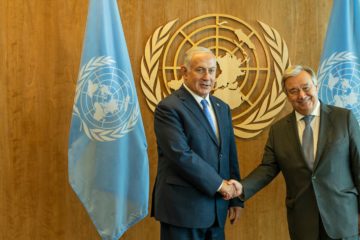
‘Uniting for Peace’ Against Israel’s Annexation Plan
With the diversion of Israel’s military resources towards West Bank, Israeli annexation of occupied Palestinian territory appears imminent, pending approval from and coordination with the American administration. Struggling to rally right-wing voters amidst the fight for his political survival in the elections of April, September 2019 and March 2020, Prime Minister Benjamin Netanyahu had stated that he would “apply Israeli sovereignty” over the West Bank, if re-elected. Bolstered by the reversal of decades of American policy on the issue and the subsequent release of Trump’s much criticized, one-sided ‘Middle East Peace Plan’ in January 2020, Netanyahu has aggressively pursued the annexation agenda with the emergency government formed with Benny Gantz in March 2020. Considering the expected blockage of the Security …
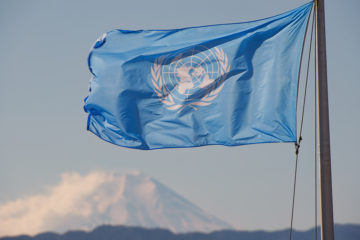
Book Review: Richard Caplan’s “Measuring Peace: Principles, Practices and Politics”
In Measuring Peace, Professor Richard Caplan of the University of Oxford has written an insightful guide for students and practitioners of peace. The book will help those who want to understand the fundamental principles and existing practices of how to assess peace while at the same time outlining some critical political constraints. Caplan provides a succinct and clear analysis of key approaches to peace measurements, their weaknesses and ways to move forward. Due to its accessibility and policy relevance, the book also stands out among other publications that have sought to evaluate and grapple with the question of how to judge the quality of existing peace. The key aim of the book is to give peacebuilders a ‘compass’ to navigate the post-war peace …

Ukraine: window opens for peace in the Donbas after Volodymyr Zelensky agrees to election plan
As the war in eastern Ukraine drags into its sixth year, all the attempts to end it have so far failed. But in a significant development on October 1, Ukraine’s president, Volodymyr Zelensky, announced his provisional agreement to hold local elections in the currently occupied territories of Donetsk and Luhansk, collectively known as Donbas. The war in the Donbas began when mass protests in support of greater territorial autonomy escalated into a separatist crisis in the spring of 2014. Russia has been supporting the rebels in the Donbas since the inception of the war, which by now has claimed more than 13,000 lives. In an attempt to end the conflict, Ukraine and Russia signed two agreements in Minsk in 2014 …
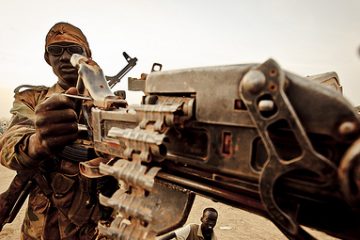
Why pro-government militias spoil peace agreements
Conflict researchers tend to dichotomise the parties involved in armed conflicts. While this dyadic perspective provides a useful simplification for the purpose of ordering the inherently unordered, it also leads to misperceptions and misrepresentations of the dynamics on the ground. Just as interstate conflicts are not necessarily fought between only two countries, intrastate conflict is rarely solely an affair of just governments and a rebel group. Omissions of other belligerents are particularly problematic if the neglected actors are systematically more prone to violent actions, or if they exert disproportionate impacts on the trajectories of conflicts and their aftermaths. Against this backdrop, our research, forthcoming in the Journal of Peace Research, highlights the specific impact of pro-government militias on the risk …
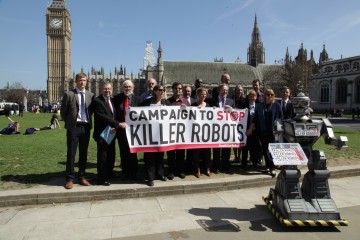
Escape of the Gaak: New technologies and the ethics of war
In 2002, the Magna Science Centre in South Yorkshire witnessed a surprising event: a two foot tall robot, Gaak, escaped from a gladiatorial experiment with learning robots. The experiment, part of the “Living Robots” project, simulated a predator and pray scenario where some robots searched for food (prey) and others hunted for them (predators). Gaak, a predator, was left unattended for fifteen minutes and, in that time, managed to find and navigate along a barrier, find a gap, move through it and continue across a car park to the M1 motorway. Gaak was found rather quickly when a motorist almost collided with it. This story of robot liberation helps us to understand a simple fact about learning machines: they are unpredictable. …
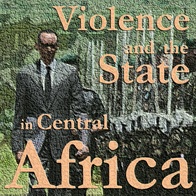
Why is important to understand the impact and responses required for sexual violence and torture survivors in conflict and post-conflict countries in Africa?
Since 1998 I have been carrying out applied research with colleagues and African organisations with survivors of sexual violence and torture. This research argues that sexual violence perpetrated in conflict and post-conflict settings causes devastating effects to individuals as well as whole communities. It results in extensive damage to survivors’ psychological, reproductive and gynaecological health. Ongoing research reveals that more women and girl-children survive conflicts than are killed; yet with tremendous wounds to their bodies and minds; assaults on their dignity, their feelings of self-worth and their future. In contrast, there are rarely consequences for the perpetrators. Applied research carried out in Uganda, Liberia and eastern Democratic Republic of Congo with colleagues and African organisations, argues that sexual violence is not solely a war crime and although extremely prevalent during conflicts, my research argues it has contaminated the post-conflict domestic sphere with high levels of community-perpetrated domestic violence and rape, particularly against young girls.
Survivors’ shame and stigma is exacerbated by severe social rejection, particularly for women and girls who become pregnant from rape, former abductees and those with AIDS and HIV infection. Many resultant physical and mental health problems are not treatable by the grossly over-stretched and under-resourced health care systems. Capacity building within primary health care and justice services needs to address psychological trauma, increase resilience and recovery through support groups, trauma counselling and improvement to mental health policies. It is vitally important that service providers (who have also often experienced human rights abuses) are assisted to develop peer support and supervision groups and receive culturally sensitive training in supporting traumatised survivors and their children born from rape. In conjunction with greater protection for their work, and regular salaries this would assist to prevent ‘burn out’.

How civil wars end
There is a tendency, even among scholars, to view civil wars as involving two actors—the “government” and “rebels.” This presumption likely arises because historical civil wars that have received the most attention—such as the American and Chinese civil wars—were generally fought between two recognized, organized combatants. Yet, many civil wars (both historical and modern) involve more than two actors.
Take the current civil war in Syria. The Syrian government battles a series of rebel groups that generate a large number of acronyms—ISIS, SLA, SIF, and so on—and that frequently fight amongst themselves. These groups often seek to form coalitions to coordinate their opposition, but the coalitions are unstable and have difficulty controlling their constituent parts. The Syrian conflict also has a large level of external involvement, with the government receiving direct military support from Iran and Hezbollah plus a large number of additional external states and non-state actors seeking to turn the course of the war.
The Syrian opposition’s fragmentation is extreme, but the multiparty nature of the conflict is by no means unique. In fact, many of the wars that have received the most international attention in recent decades—such as in Afghanistan, Columbia, the Democratic Republic of the Congo, Iraq, the Palestinian conflict in Israel, the Darfuri war in Sudan, and Somalia—have involved several rebel groups and significant external involvement.

The Loneliness of a Moderate Muslim
I am a Muslim and I condemn the rampant and widespread violent protests over a badly made anti-Islamic film. I believe one needs to have a very high bar when it comes to getting offended. If everything is offensive to you, then it is perceived that something is wrong with you. The Indian government proved it recently with its tantrum against cartoonist Aseem Trivedi’s mediocre caricatures. Now a section of radical Muslims is proving it over an insignificant film. I saw “Innocence of Muslims” a couple of days ago on YouTube. It is a laughable attempt at insulting Muslims and sooner rather than later would have met its fate at the hands of a Ricky Gervais or a Jay Leno. …









